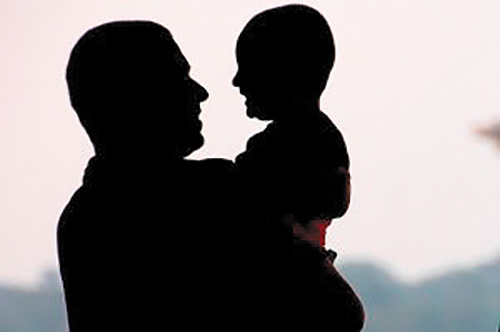
In the previous article, we ended with the comments of Rav Shlomo Wolbe, zt’’l, who discussed the importance of building a warm relationship with one’s children during the early years of a child’s life. This relationship and connection serve as a ‘protective shield’ for children during the years of adolescence, which is a time period that brings additional turmoil and challenges.
Perhaps the most powerful image in the Torah that personifies the idea of using the parent/child relationship as a barrier against challenging events is the episode of Yosef and Eishet Potifar. The Torah describes that Yosef was coming to the house of Potifar to ‘do his work.’ While the simple meaning of the verse is that Yosef came to the house of his master to perform his daily duties, Rashi cites another interpretation (based on a gemara in Masechet Sotah) that relates that Yosef came to the house that day ready to engage in illicit relations with the wife of Potifar. However, Yosef was able to resist his temptation. How was this possible?
The gemara states that Yosef saw an image of his father Yaakov telling him that what he was about to do was wrong and would have severe consequences for the future. Immediately upon seeing this image, Yosef ran out of the house and away from the wife of Potifar. Yosef was able to use the connection that he had to his father Yaakov to assist him with a very difficult challenge. It was this connection that Yosef used to avoid temptation and sin.
The parent/child connection becomes more complex in today’s age where the values of children are heavily influenced by media, internet and other technological devices. Now more than ever, we live in times where many leading psychologists feel that parents have little control over their children’s values due to other competing value systems. However, research still indicates that a strong parent/child connection provides a strong foundation for social and emotional growth. Therefore, I think that it behooves us to take a closer look at some of Rav Wolbe’s points that relate to our discussion.
Rav Wolbe writes that a young child internalizes negativity and negative events in his/her inner psyche. When a parent acts in a negative way toward the child (yelling, fighting or even physical punishment), these events are internalized in a child’s psyche. A young child is still controlled by the parents so the child may be unable to act out his disapproval at his parents. However, as a child matures and grows up, the child’s inner psyche will re-awaken and will project all of those ‘latent’ feelings back onto the parents. Therefore, behaviors such as defiance and testing boundaries may not simply be a response to a present confrontation with a parent. It could also be a response of the inner psyche to the ‘negativitiy’ that occurred at an earlier point in life.
Many argue that the teenage years are the years of rebellion. The search for identity and the discovery of competing value systems give rise to additional turmoil that may call into question previously accepted value systems. While all of this is true, Rav Wolbe is teaching us that a child’s ‘rebellion’ is not only due to competing value systems that challenge the parents’ authority. Behaviors that are defined as ‘acting out’ or ‘rebellious’ may also be due to inner turmoil that did not receive expression during a child’s early years.
As Rabbi Paysach Krohn noted in a parenting lecture to parents, there are never any guarantees in parenting. Everything that occurs is through divine assistance (siyata dishmaya) and even a Tzaddik like Avraham was challenged with Yishmael and Yitzchak was challenged with Eisav. However, Rav Wolbe’s words force us to re-examine how parents can nurture a warm relationship with their children, even while working among competing value systems.
Some of these points include:
Building connection over time
Communication with your child about ‘up’s and down’s’
Working together as a team to instill values in your home
Speaking to your child about value conflicts
Rabbi Mark Staum, LCSW is the school therapist for the PTACH program @ MTA and maintains a local private practice. Mark specializes in child, adolescent and family therapy and is available for speaking engagements and consultation. To contact Mark, please email him at mstaumlcsw@gmail.com
By Dr. Mark Staum













